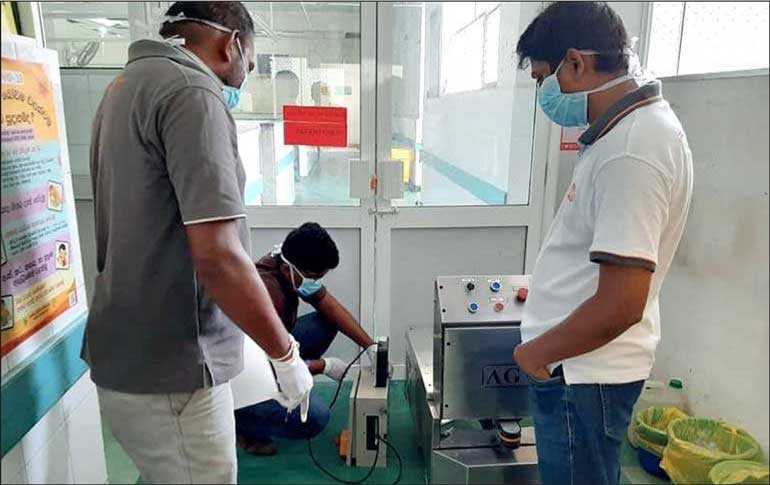Monday Feb 23, 2026
Monday Feb 23, 2026
Thursday, 2 April 2020 00:00 - - {{hitsCtrl.values.hits}}

At the moment we are facing one of the unexpected global crisis is in Sri Lanka. Not only numbers but the agony of people would give you the real picture of this situation. This is the situation in which we  need to build up the nation. As a responsible citizen, every one of us should do justice for the country by helping each other.
need to build up the nation. As a responsible citizen, every one of us should do justice for the country by helping each other.
What about the responsibility of companies?
A recent survey was done by Kantar (data, insights and consulting company with more than 30,000 employees working in 100 countries in various research disciplines, including social media monitoring, advertising effectiveness, consumer and shopper behavior, and public opinion) by using more than 35,000 consumers globally found that those companies should play their part, with 78% of consumers believing brands should help them in their daily lives, 75% saying brands should inform people of what they’re doing and 74% thinking companies should not exploit the situation (marketingweek.com).
Donations and looking after employees
The same study shows 40% want to see companies making donations of products, such as hand sanitisers or face masks. And also the way you treat your employees is also important .The same study suggests that almost 80% customers surveyed believe that employee health should be a key priority for companies and more importantly almost two-thirds believe flexible working is the main concern.
It is important to see how Chinese companies reacted in this context. “Some Chinese companies created very proactive guidance and support for employees. For example, China’s largest kitchenware manufacturer Supor instituted very specific operational guidelines and procedures for its employees, such as instructions for limiting exposure while dining in canteens and emergency plans for abnormal situations. In addition, the company instituted health checks for employees and their families from the early stages of the outbreak and procured preventative equipment.” (https://hbr.org/2020/03/how-chinese-companies-have-responded-to-coronavirus)
COVID-19: Redefining of the relationship between business and society
We need to learn from some good practices in different countries. Experts in the field were of the view that this epidemic is forming a new relationship between ‘business and society’. Refer the following remarks by the Editorial Board in FT.com:
“One of the consequences of the pandemic must be a redrawing of the relationship between business and society. The huge sums of money being committed by the UK government and others to support companies will inevitably lead to a larger role for the state. This should not become the norm once the virus abates. But it does, as a new report by the Social Market Foundation think-tank says, demand reciprocity by business — one that, in time, should lead to a ‘new social contract’ between British business, government and society. The report rightly argues that this new deal should codify the standards to which business should adhere to justify the support it receives from the public to operate — not just now, but in the future. The business should not regard this as another burden but as a chance to re-gain the public’s trust. Paul Polman, the former Chief Executive of Unilever, is right to call on business owners to hold companies to a higher moral standard. The global recovery effort will require all parts of society to work together. Business must play its part.” (https://www.ft.com/content/a47c734a-702e-11ea-89df-41bea055720b)
Conclusion
In Sri Lanka, we can see business leaders taking on the challenge and tirelessly using their energy in this crisis situation. Anyway we need to integrate this into our business and come up with a different Sri Lankan model embedded with our society. There is a need for us to revisit our history also in this context.
(The writer is Professor in Management Studies at the Open University of Sri Lanka. You can reach him via [email protected].)